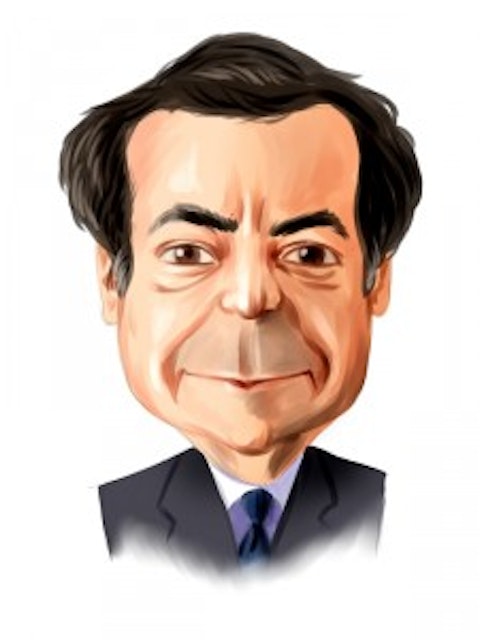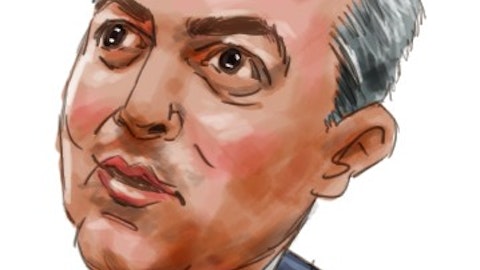
Morgan Stanley Wealth Management has become the second major brokerage to drop hedge fund manager John Paulson‘s Advantage and Advantage Plus Funds from their retail offerings, CNBC has learned. The move was not expected. Back in May, Morgan Stanley (NYSE:MS) put the funds on “watch” because of their poor performance. In an email sent to the unit’s financial advisers on Tuesday, it changed the status of the funds to “redeem” from “watch,” telling clients they should redeem their holdings in the funds. Morgan Stanley cited the poor performance of the funds as the reason behind its decision.
LIG Assets forms partnership with Texas Real Estate Hedge Fund (HedgeWeek)
LIG Assets has entered into an alliance with Texas Real Estate Hedge Fund to invest, acquire, manage and finance commercial real estate properties. Geographically these assets will be well located properties in the Southwest, West and Midwest sectors of the US. Texas Real Estate Hedge Fund will focus on commercial real estate opportunities with valuations ranging from USD5m to USD100m. The composition of these assets will cover multifamily, retail, destination hotel and office properties.
Herbalife Ltd. (HLF) CEO on Bill Ackman: ‘We Want The SEC to Take Action’ (InsiderMonkey)
By now, you’ve probably heard what hedge fund manager Bill Ackman, manager of Pershing Square Capital, reportedly thinks of Herbalife Ltd. (NYSE:HLF)‘s business model. Originally reported by CNBC’s Maneet Ahuja and Kate Kelly, “Bill Ackman is short the nutritional-supplement seller,” and “has told people he considers the business to be little more than a “pyramid scheme.” These claims are “according to someone familiar with the matter,” so it’s not exact clear who was responsible for the leak, but the source did say that Ackman “put on the bearish Herbalife position about seven or eight months ago.” In response to the reported position, shares of Herbalife fell by more than 12% in trading today, and further losses were seen after hours.
NY Hedge Fund Claims Compuware Dragging Its Feet On Takeover Offer (DeadLineDetroit)
A New York hedge fund isn’t rolling over quite yet in its attempt to buy Compuware. Elliott Management, which announced an unsolicited bid of $11-per-share on Monday, told the Free Press the software firm has been slow to adapt to the fast-changing technology market. The firm is also none too happy that Compuware appeared to be taking its time responding to the $2.3 billion buyout offer. The Freep reported that Compuware’s 11-member board of directors, which includes co-founder Peter Karmanos Jr., indicated it won’t take up the offer until January or early February. Compuware CEO Bob Paul told employees Monday the offer was too low.
Fed’s $4 Trillion Rescue Helps Hedge Fund as Savers Hurt (BusinessWeek)
Deepak Narula’s mortgage-bond fund is up 39 percent this year. George Sanchez’s monthly annuity payout is down 41 percent. The near-zero interest rate the Federal Reserve charges financial firms, as well as securities purchases that will balloon the central bank’s balance sheet to almost $4 trillion next year, have made it easier for Narula’s $1.6 billion fund to thrive and more difficult for Sanchez, a former college library director, to enjoy retirement.
Ex-Superfund executive launches computer hedge fund (Reuters)
A former executive at computer trading firm Superfund is betting that blending man and machine will help his new quantitative hedge fund buck a trend that has seen many rivals run up big losses this year. Aaron Smith, a former managing director of Vienna-based Superfund’s U.S. and Singapore units, has launched Pecora Capital and is now opening up the fund to external investors, he told Reuters in a recent interview. He said the fund could grow to as much as $400 million.
Commodity trader hedge funds outsmart standalone rivals (Reuters)
Hedge funds owned by commodity giants including Cargill and Louis Dreyfus have outwitted their standalone rivals in a year of market volatility that has disrupted traditional models for oil and metals trading. They have used their knowledge of agricultural markets to trade products that have been less affected by central bank liquidity injections or heightened tensions in the Middle East as many other funds have had their worst year in a decade.



